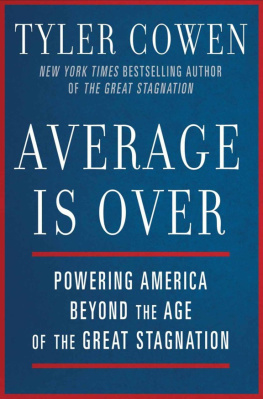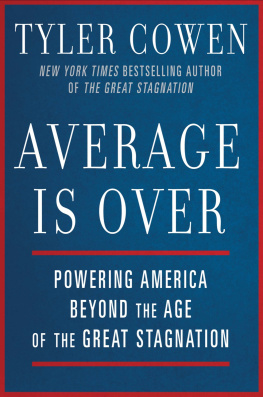Table of Contents
DUTTON
Published by Penguin Group (USA) Inc.
375 Hudson Street, New York, New York 10014, U.S.A.
Penguin Group (Canada), 90 Eglinton Avenue East, Suite 700, Toronto, Ontario M4P 2Y3, Canada (a division of Pearson Penguin Canada Inc.); Penguin Books Ltd, 80 Strand, London WC2R 0RL, England; Penguin Ireland, 25 St Stephens Green, Dublin 2, Ireland (a division of Penguin Books Ltd); Penguin Group (Australia), 250 Camberwell Road, Camberwell, Victoria 3124, Australia (a division of Pearson Australia Group Pty Ltd); Penguin Books India Pvt Ltd, 11 Community Centre, Panchsheel Park, New Delhi110 017, India; Penguin Group (NZ), 67 Apollo Drive, Rosedale, North Shore 0632, New Zealand (a division of Pearson New Zealand Ltd); Penguin Books (South Africa) (Pty) Ltd, 24 Sturdee Avenue, Rosebank, Johannesburg 2196, South Africa
Penguin Books Ltd, Registered Offices: 80 Strand, London WC2R 0RL, England
Published by Dutton, a member of Penguin Group (USA) Inc.
First printing, February 2011
Copyright 2010 by Tyler Cowen All rights reserved
REGISTERED TRADEMARKMARCA REGISTRADA
eISBN : 978-1-101-50225-9
Chart on page 14 reprinted from Technological Forecasting and Social Change, Vol 72/Issue 8, Jonathan Huebner, A possible declining trend for worldwide innovation, Copyright (October, 2005), with permission from Elsevier.
Without limiting the rights under copyright reserved above, no part of this publication may be reproduced, stored in or introduced into a retrieval system, or transmitted, in any form, or by any means (electronic, mechanical, photocopying, recording, or otherwise), without the prior written permission of both the copyright owner and the above publisher of this book.
The scanning, uploading, and distribution of this book via the Internet or via any other means without the permission of the publisher is illegal and punishable by law. Please purchase only authorized electronic editions, and do not participate in or encourage electronic piracy of copyrighted materials. Your support of the authors rights is appreciated.
While the author has made every effort to provide accurate telephone numbers and Internet addresses at the time of publication, neither the publisher nor the author assumes any responsibility for errors, or for changes that occur after publication. Further, the publisher does not have any control over and does not assume any responsibility for author or third-party Web sites or their content.
http://us.penguingroup.com
Acknowledgments
For useful comments and discussions, I wish to thank Peter Thiel, Daniel Sutter, Alex Tabarrok, Garett Jones, Bryan Caplan, Robin Hanson, Michael Mandel, Stephen Morrow, Natasha Cowen, Teresa Hartnett, John Nye, Jason Fichtner, Michelle Dawson, Nathan Molteni, Michael Munger, seminar participants at Duke University, and Jayme Lemke. I dedicate this work to Michael Mandel and Peter Thiel, who have blazed the way.
The Low-Hanging Fruit We Ate
Land, Technology, and Uneducated Kids
America is in disarray and our economy is failing us. We have been through the biggest financial crisis since the Great Depression, unemployment remains stubbornly high, and talk of a double-dip recession persists. Americans are not pulling the world economy out of its sluggish stateif anything, we are looking to Asia to drive a recovery. Our last three economic recoveries, beginning respectively in 2009, 2001, and 1991, have been jobless in nature. Commerce recovered far more quickly than did employment.
Median wages have risen only slowly since the 1970s, and this multi-decade stagnation is not yet over. Typical individuals in earlier generations reaped much greater gains than ours, as their living standards doubled every few decades. Weve even given back some of the growth we thought we had. A lot of the prosperity of the noughties was built on debt, inflated home prices, and economic illusions. Currently, we are struggling to re-attain the economic output of 2008, and even before the financial crisis came along, there was no new net job creation in this last decade. Moreover, we face a long-run fiscal crisis, driven by the increasing cost of entitlements, our heavy reliance on debt, and our willingness to let matters slide rather than face up to paying the bills.
The problems extend to American politics. The Democratic Party seeks to expand government spending even when the middle class feels squeezed, the public sector doesnt always perform well, and we have no good plan for paying for forthcoming entitlement spending. To the extent Republicans have a platform, it consists of unrealistic claims about how tax cuts will raise revenue and stimulate economic growth. The Republicans, when they hold power, are often a bigger fiscal disaster than the Democrats.
You might like either the Republicans or the Democrats more than I do, but still something is wrong in todays politics, even if we dont always agree on the remedies. Political discourse and behavior have become increasingly polarized, and what I like to call the honest middle cannot be heard above the din.
People often blame the economic policies of the other side or they belligerently snipe at foreign competition. But we are failing to understand why we are failing. All of these problems have a single, littlenoticed root cause: We have been living off low-hanging fruit for at least three hundred years. We have built social and economic institutions on the expectation of a lot of low-hanging fruit, but that fruit is mostly gone.
Have you ever walked into a cherry orchard? There are plenty of cherries right there for the picking. Imagine a tropical island where the citrus and bananas hang from the trees. Low-hanging literal fruityou dont even have to cook the stuff.
In a figurative sense, the American economy has enjoyed lots of low-hanging fruit since at least the seventeenth century, whether it be free land, lots of immigrant labor, or powerful new technologies. Yet during the last forty years, that low-hanging fruit started disappearing, and we started pretending it was still there. We have failed to recognize that we are at a technological plateau and the trees are more bare than we would like to think. Thats it. That is what has gone wrong.
The old understanding was that the world broke through a barrier with the industrial revolution of the eighteenth century and that we can grow economically at high rates forever. The new model is that there are periodic technological plateaus, and right now we are sitting on top of one, waiting for the next major growth revolution.
Around the globe, the populous countries that have been wealthy for some time share one common feature: Their rates of economic growth have slowed down since about 1970. Thats a sign that the pace of technological development has been slowing down. Its not that something specific caused the slowdown, but rather we started to exhaust the benefits of our previous momentum without renewing them.
There have been three major forms of low-hanging fruit in U.S. history:
1. Free land
Up through the end of the nineteenth century, free and fertile American land was plentiful and there for the taking. A lot of this land was close to lakes and rivers. You could move from Europe, work hard on good U.S. topsoil, and enjoy a higher standard of living. The European peasants who remained at home did not have similar access to resources. The United States became the wealthiest country in the world relatively quickly, and probably it held this designation well before the close of the eighteenth century. So much fertile land coupled with a relatively high degree of social freedom explains much of this transformation.











